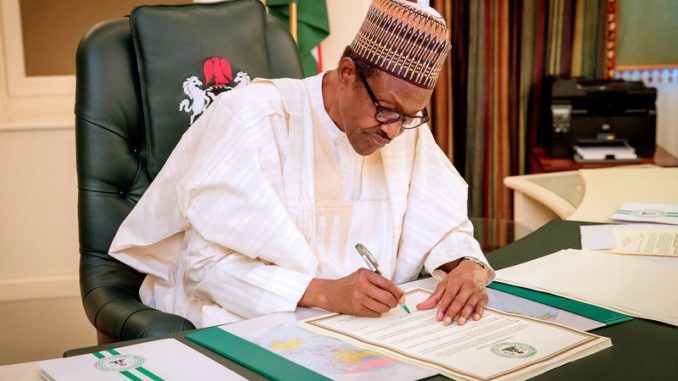
I can’t disagree more with the Federal Government’s drive to confiscate the assets belonging to private citizens. It is like using a machine gun to kill a mosquito. At best, it will be tantamount to winning a single battle, while losing the war against corruption.
First, what if the assets confiscation policy is designed with the intention of using it to fight the presumed political enemies of President Muhammadu Buhari? What happens when these so-called enemies of the President fight back by suing the Federal Government for hundreds of billions of naira in damages? Where will the government find the funds to pay in compensation?
Is this not going to trigger a new set of corrupt practices and a situation where government lawyers connive with those suing the government for damages to ensure that not only do they win their cases against the government, but also that the courts award them the hundreds of billions of naira in damages with a substantial part of the awards going to the same government lawyers?
Have we considered the consequences of this huge cost to the entire economy simply because the government is pursuing such a poorly articulated policy?
Just imagine what will happen to the national economy if the Federal Government goes ahead to confiscate and keep the properties belonging to some presumed guilty Nigerians and if, as a result, confiscated assets, such as hotels, hospitals, schools, universities, airlines, office complexes, estates, entertainment centres, petrol depots and gas stations, churches and mosques, etc, are rendered idle and moribund? What if it is used purely against the political opponents?
We should ask these important questions because of the timing. In fact, it wouldn’t be out of place for someone to also ask why President Buhari didn’t initiate this move from the outset. In other words, why should it be exactly at the twilight of his government? Shouldn’t the opposition parties be right to insist that it is simply designed for cheap election campaign gains?
Any decision by the government to confiscate a citizen’s private property without a court judgment should be deemed illegal because in law it could be called a kind of self-help action, as well as trespassing. No court should allow the government to seize any private property or assets unless it proves its case. Even if a lower court does that, can’t the citizen appeal the judgment by seeking a stay of execution?
Let us not forget that the private citizen in question is no longer presumed innocent but presumed guilty against his constitutional and fundamental human rights. It is this that makes this anti-corruption policy of government so dangerous. It is dangerous because it overrides the powers of the judiciary as they are now handed to the executive.
It is far from being democratic that one man should give himself the power to decide to confiscate assets belonging to citizens without first obtaining judgment from a court of competent jurisdiction. To decide whose assets should or should not be confiscated is primitively monarchical and dictatorially anti-democratic, at least.
That is why, even if we discount the above, there is no way we should also not ask why the President has come up with this weird policy in less than eight months to the general elections and in less than one year to the end of his first term and possibly his last term?
These questions and many others need urgent answers before this asset confiscation policy of an administration, which most Nigerians consider to be as corrupt as past governments, is allowed to fly.
If I were a lawyer, I would not waste time to sue the Muhammadu Buhari administration in a court of competent jurisdiction, where I would apply for a court order and insist on the suspension of this draconian policy, pending the full determination of its merits.
As a patriotic lawyer, I would do this simply to save our young democracy from dangerously becoming a dictatorship.
Odilim Enwegbara wrote in from Abuja
END

Be the first to comment